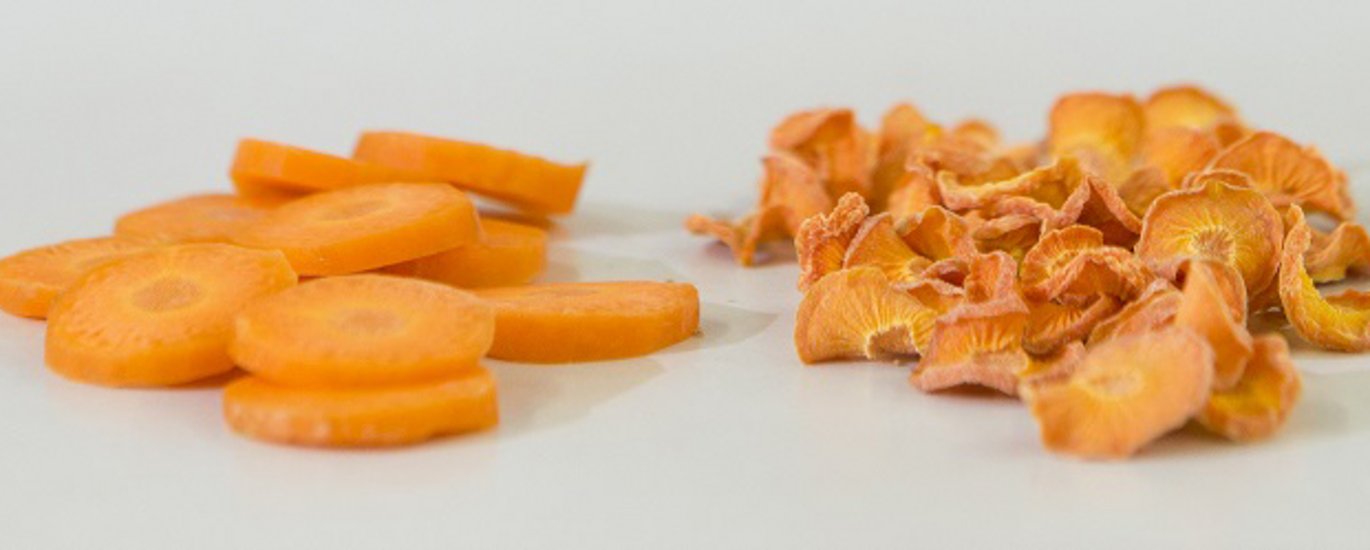Smart and intelligent drying systems for organic foods
In the last two years, non-invasive and smart monitoring solutions approach for producing premium quality dried foods were designed. Cloud-based solutions as well as soft sensors and the determination of critical control points were investigated in the context of the SusOrgPlus project.

The changing attitudes of people is pushing organic foods as a prime choice in line with sustainable consumption patterns. Drying is the foremost and extensively used industrial process in the plethora of food preservation to enhance food stability. However, drying consumes a lot of energy and can cause quality losses due to physicochemical changes, decreasing the aesthetics and the final quality of the product.
Smart drying, an emerging and most promising technique is developed and adapted to proactively monitor quality changes in the product as well as dryer operating conditions throughout the entire drying process.
To enhance the understanding of critical process parameters, computer vision (CV) in combination with machine learning and deep learning has been evaluated as a potential Process Analytical Technology (PAT) tool for food drying. Computer vision (CV) was proactively used to non-destructively detect and monitor physicochemical changes in organic food. The proposed approach lays the foundations for an efficient hot air dryer with an in-line embedded CV-system combined to an online Data Management System (DMS) to enable the development of dynamic drying processes for quality-oriented and cost-effective food processing systems. The team further explored dynamic multi-factorial process control strategies using different fruits like apple, apricot, banana, cherry, kiwifruit, lime, nectarine, pear, plum and vegetables like bell pepper, carrot, champignon mushroom, cherry tomato, cucumber, onion, plum tomato, potato, zucchini by machine learning architectures and Deep learning algorithms for developing smart dryers. These dryers are aimed to recognise the inlet wet food properties and learn how to select the optimal operating conditions.
It was further decided to also develop solutions which do not necessarily depend on permanent connection to a cloud focussed on the development of Soft Sensors (sensor data fusion of environmental and product relevant measurements) and the determination of critical control points which then can be used as the basis of the dynamic control algorithms within the controller. Extensive studies have been conducted to determine critical points in the dynamic development of product quality. This information has been used for the development of critical-control-point driven drying. Several of these studies are either already published or under preparation for publishing. This involves the investigation on intermittent drying, where the drying process was interrupted at predefined moisture levels and continued after tempering time of 1 or 3 hours. The results obtained showed that intermittent drying can reduce the drying time as well as increase the carotenoid retention compared to continuous drying.
The next focus area of the team is to increase the process efficiency through development and optimization of real-time monitoring and control systems of process parameters affecting the quality of the end-product and therefore implement the idea of Quality by Design (QbD) in the organic food sector for producing premium quality dried foods.
For more information, please see:
https://www.susorgplus.eu/content/wp-1-development-smart-processing-chains
Authors
Riccardo Massantini, Department for Innovation in Biological, Agro-food and Forest systemsUniversity of Tuscia, massanti@unitus.it
Roberto Moscetti, Department for Innovation in Biological, Agro-food and Forest systemsUniversity of Tuscia, rmoscetti@unitus.it
Swathi Nallan, Department for Innovation in Biological, Agro-food and Forest systemsUniversity of Tuscia, swathi.nallan@unitus.it
Barbara Sturm, Department of Agricultural and Biosystems Engineering, University of Kassel, barbara.sturm@uni-kassel.de
Gardis v. Gersdorff, Department of Agricultural and Biosystems Engineering, University of Kassel, g.gersdorff@uni-kassel.de
Editor: Karin Ullven / Design: Christine Dilling
